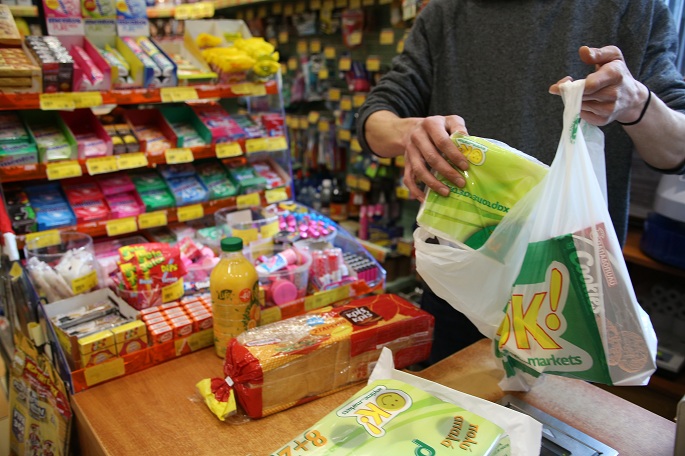Greece charges for plastic carrier bag use at supermarkets
Published : 04 Jan 2018, 00:03
Updated : 04 Jan 2018, 00:32
As supermarkets across Greece reopened on Wednesday after the New Year's holidays, consumers were faced with a new charge.
For each plastic carrier bag used at the counter from now on, Greeks will have to pay four euro cents (five U.S. dollar cents) as part of renewed efforts to protect the environment from the hazardous plastics.
Under a law put into effect on Jan. 1 this year, all revenues will go to the Greek Recycling Agency for environmental programs, according to a Greek environment ministry announcement. The charge will be increased to 9 euro cents on New Year's Day in 2019.
The aim is to reduce the number of plastic bags used by Greeks which is double than the average in Europe.
In 2015, when a EU directive was ratified aimed at limiting the use per person to 90 bags annually by 2019 and 40 by 2025, Greeks used 242-363 plastic bags per person, Greek Recycling Agency noted.
The number exceeded 400 plastic bags per person in 2016, according to the Greek Research Institute of Retail Consumer Goods (IELKA). And more than half come from supermarkets.
According to IELKA's survey, six in two Greeks said they will start using reusable bags from now one, three out on ten have not made a decision and one in ten said will keep using plastic bags, despite the extra cost.
As the culture of recycling is still lagging in Greece, most plastic bags, along other household waste, end up in the trash. According to Eurostat data, less than 20 percent of household waste is recycled in the country.
The charge may encourage Greek consumers to start using more reusable fabric or paper bags, environmentalists said, but expressed doubts whether the small cost compared to other similar charges in other countries or exceptions will help significantly.
Kiosks and open air markets are exempt from the new regulation.
There is an all-out ban in 35 countries worldwide, according to IELKA, while in others, the charge is much higher (0.25 euro cents in the Netherlands).
For experts such as Christina Kontaxi, Director of the local NGO Mediterranean SOS Network, stricter policies are needed to bring substantial change.
More preparation should have been made to educate the public in depth and help businessmen adjust to the new standards, she told Xinhua on Wednesday.


